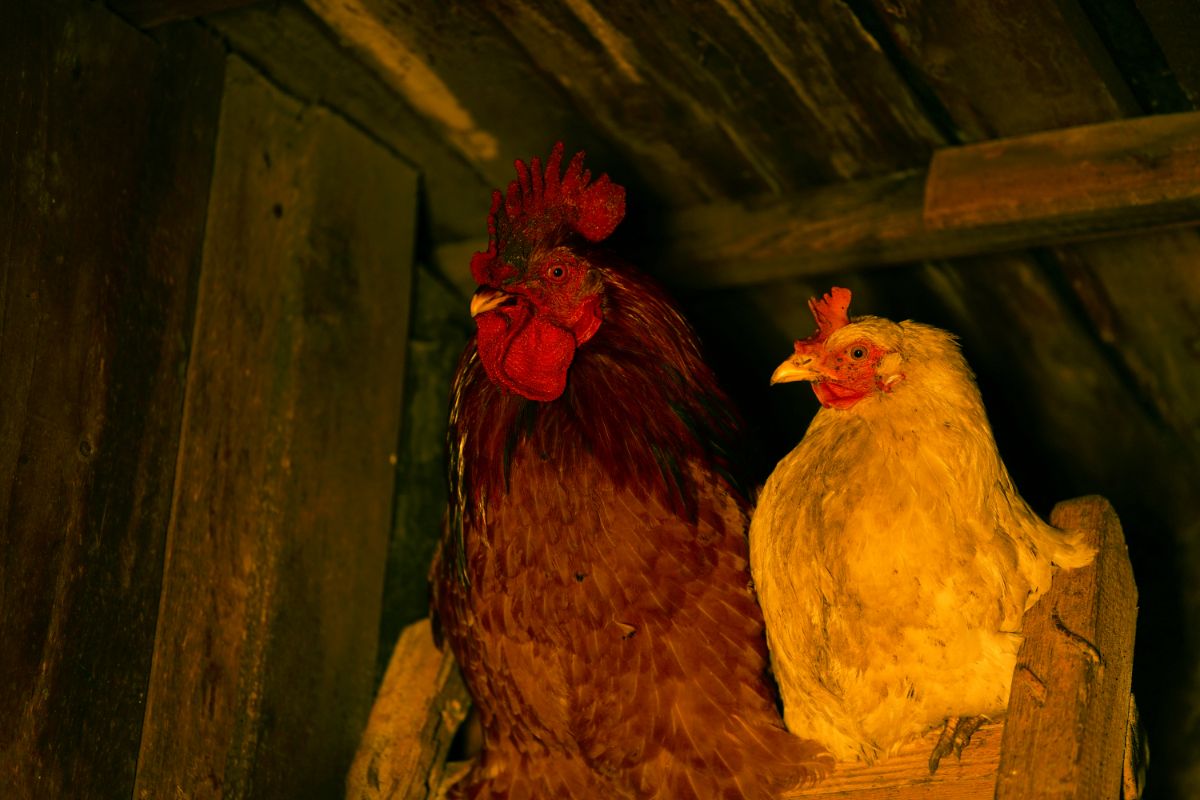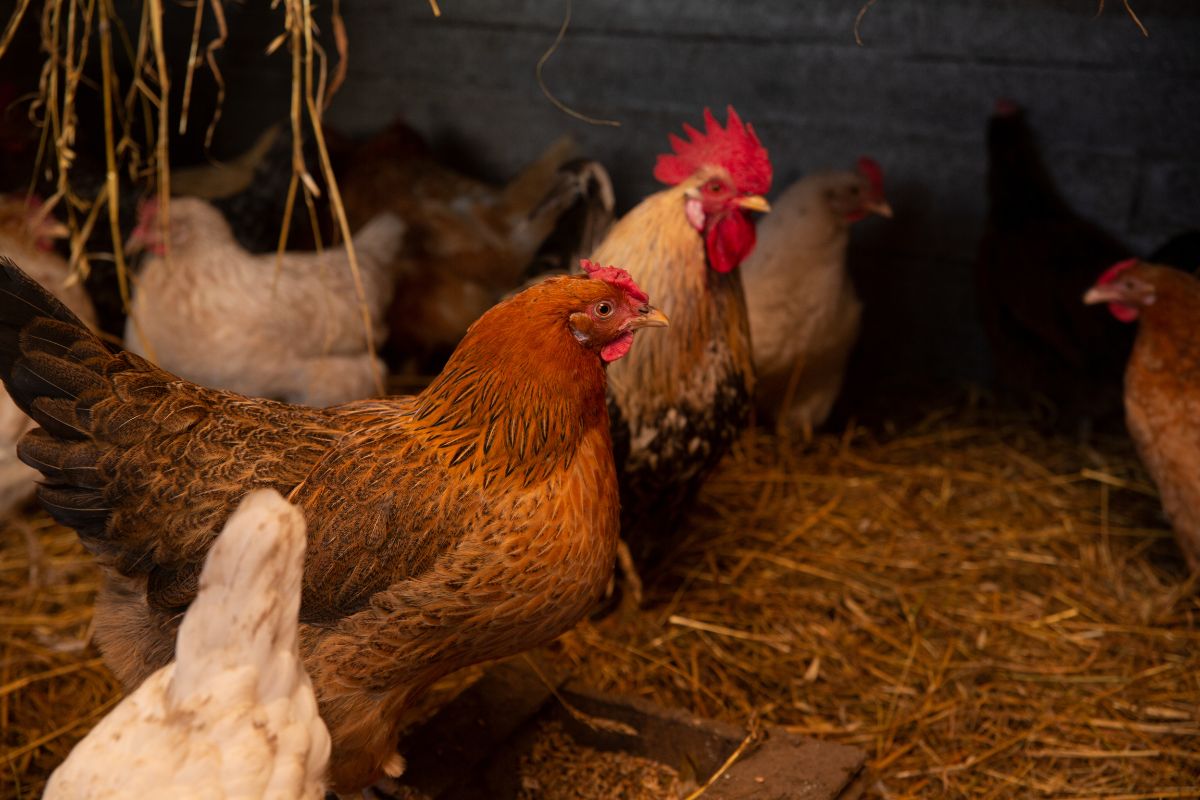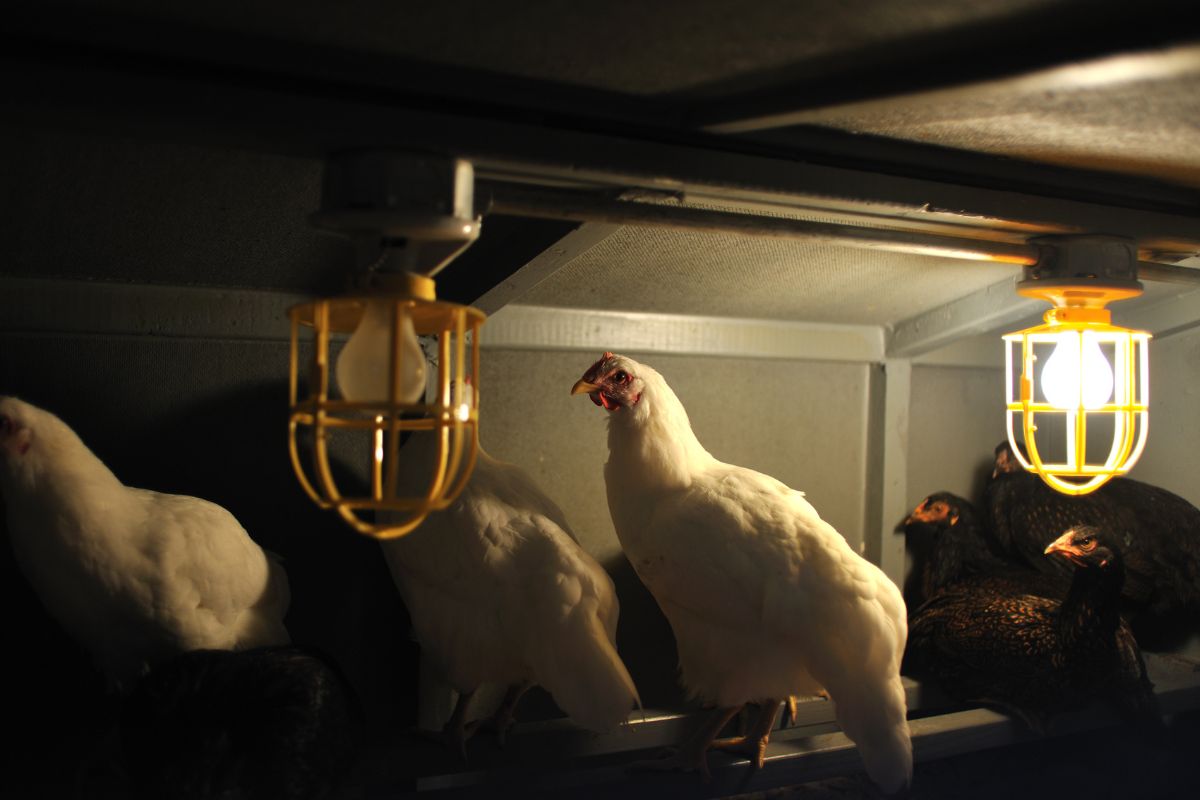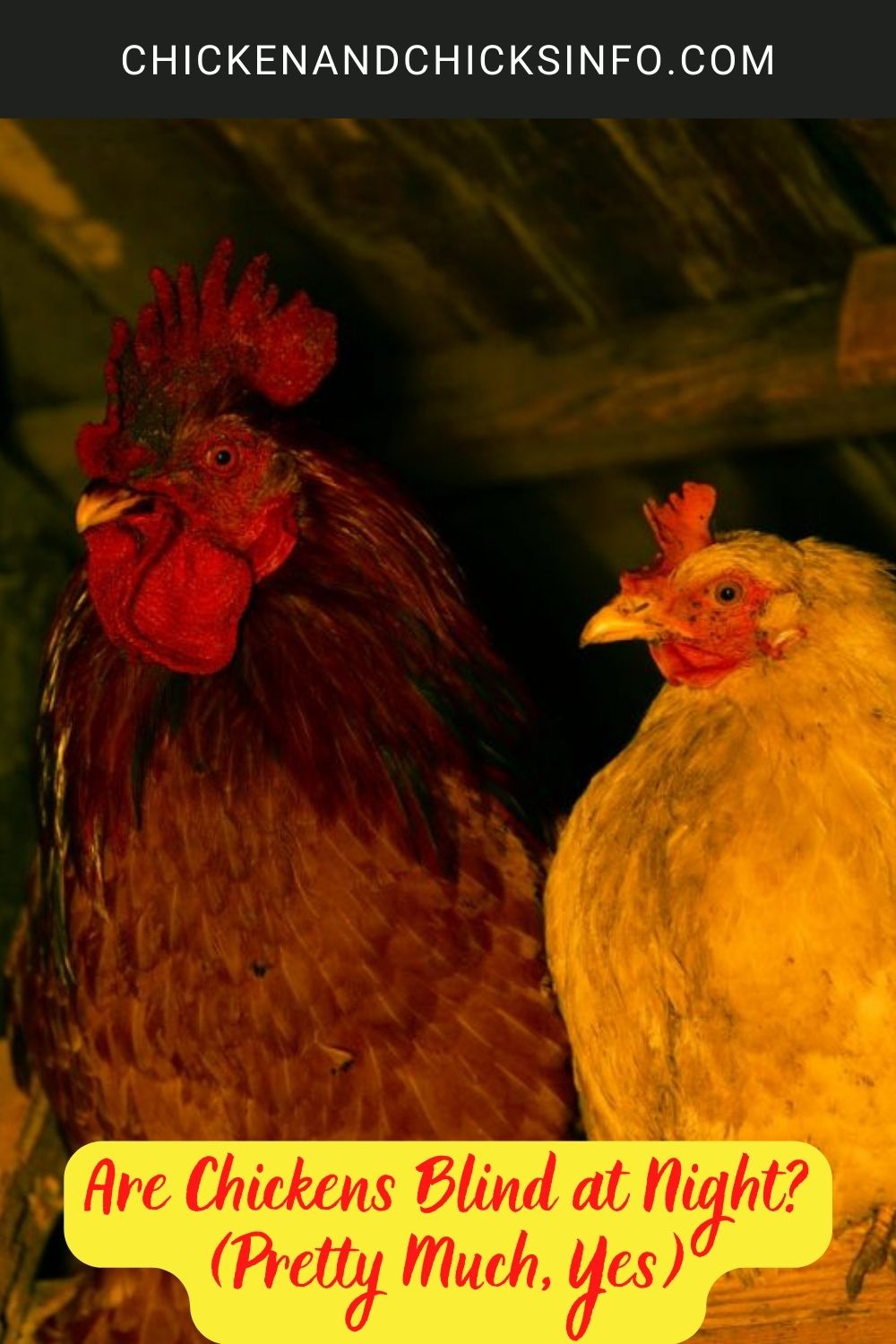
If you’ve interacted with your chickens at night when it’s dark, you may have noticed something…
Chickens really can’t see very well at night. In fact, they are often referred to as having night blindness.
There is some science to back up the fact that chickens do not have as good vision as we do at night, which isn’t great. And they certainly can’t see as well as nocturnal animals.
Jump to:
How Well Can Chickens See at Night?
It’s hard to quantify in words exactly how well chickens can see at night, but it’s not very well.
From personal experience, I know that if I enter my coop at night my chickens all stay pretty still. If I shine a light in there it makes them jump, and they act a little skittish.
I also noticed that when I handle them in the dark they are very placid. Almost to the point where they seem to want to just sleep.
Which led me to do some research into how well they can see at night.
According to LiveScience, due to being descendants of dinosaurs and not going through a long nocturnal period as most mammals did, chickens’ eyes are not as developed to see at night.
In scientific terms; night-vision relies on light-sensitive photoreceptors in the retina called rods, while daytime vision relies on receptors called cones.

Chickens have more cones than we do. So they’re able to see a wider range of colors, can see smaller things than we can, and have better daytime vision.
However, they have less rods than we do in their eyes. Therefore, they are not able to see as well as we can at night.
And let’s be honest, we can’t even see that well at night, can we?
Have you ever been somewhere in the dead of night with no artificial light? I have, and I could hardly see my hand right in front of me.
This explains why chickens are more than happy to come home to roost as it’s getting dark. As well as why their body clocks are so in sync with daylight hours.
Related - Are chickens color blind?
Can Chickens Find Their Way Home?
This is always a natural concern for backyard flock owners letting their chickens free range for the first time - or when it’s getting dark and they’re nowhere to be seen!
Generally speaking, chickens will not roam further than they are comfortable with. They tend to stay close to their coops and food and water sources, and who can blame them.
Letting chickens roam free is one of the best things you can do for them, and it’s really nothing to be concerned about.
As long as there are no predators in the area, of course.
Due to having really poor night vision, they would have a problem finding their way home in the dark, however.
This is why you should always round up your flock before dark and get them securely locked up in their coop.
Related - How far do free range chickens roam?
Do Chickens Need Lighting in Their Coop?

Now you know how bad their vision is at night, you might be wondering if you should put some lighting in their coop to help them out, right?
Chickens can struggle to find their roosting bar, nesting boxes, and all the other stuff when it’s pitch black. Just as we would fumble around with no light, but you don’t need to add artificial light to their coop.
The only reason to add artificial light is to give egg production a boost. Chickens need around 14-16 hours of light a day to lay at their maximum potential, which is why they lay less during the winter months.
You can give them some additional hours of light by adding a lamp to their coop, this will ensure you’re getting more eggs through winter.
I wouldn’t worry about setting a light on a timer to help them see better. Chickens will adapt to the number of natural daylight hours, they’ll return to roost earlier and sleep more during the winter.
In Summary - Are Chickens Blind at Night?
Yes, chickens are pretty much night blind. Their eyes have fewer rods than ours, which is what is responsible for how well we can see at night.
This is why chickens come home to roost when it’s starting to get dark and are perfectly happy sleeping in their coop when it’s dark.
It’s just one of the many interesting facts about chickens that most people aren’t aware of. Yet it makes perfect sense when you observe your chickens and look at how they live.
Resources
Chickens see color better than humans - LiveScience.com





